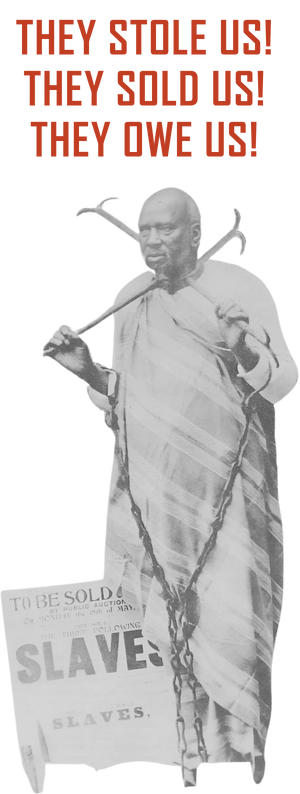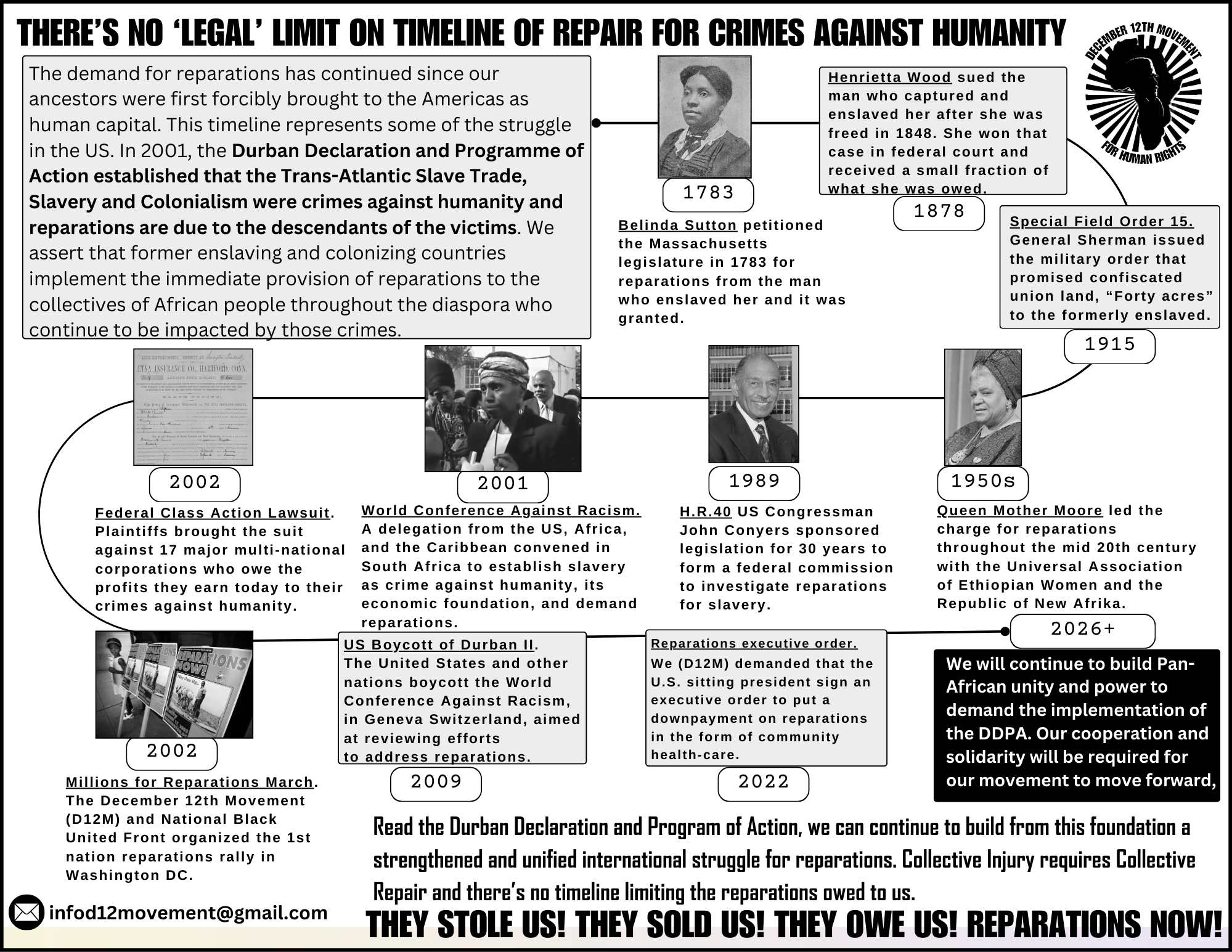Reparations
We demand that the United States acknowledge and implement the Durban Declaration and Programme of Action.
- In the final analysis, the debt owed to People of African Descent is the responsibility of the U.S. government

- The debt owed to People of African Descent includes victims of chattel slavery and those who arrived in the U.S. after the period of chattel slavery, who have suffered the continuing oppression of Jim Crow, White Supremacy and the hydra-headed terror of racialized capitalism
- The debt owed is a collective, rather than an individual one
- Reparations will only be won through an irresistible pressure brought by the organized masses of People of African Descent.
- Our platform is built on the foundation set by those People of African Descent – Callie House, W.E.B. DuBois, Queen Mother Moore, Malcolm X, and more – whose work preceded our organization’s birth in 1987. But it also reflects the lessons we have learned from our own participation in this fight:
Since 1989, for over three decades, the December 12th Movement (D12) has been actively engaged in the fight for reparations for descendants of enslaved Africans in the United States and worldwide, addressing the ongoing violations of our human rights. D12’s decades of work in the struggle for reparations directly led to the United Nations’Durban Declaration and Programme of Action (DDPA) which for the first time in history declared the Trans-Atlantic Slave Trade and Slavery as a crime against humanity. We cannot underestimate the significance of the DDPA. Crimes against humanity have no statute of limitations. Therefore, our demand for reparations can be brought under international law.
Our work is inspired by Malcolm X, who viewed the struggle of African Americans in the United States as part of a larger global fight for human dignity—one that must be addressed on an international level. Following Malcolm’s lead, our reparations work links the enslavement of African peoples to the colonization of the African continent. As a result of slavery and colonialism, African peoples have been dispersed and divided by national boundaries. Nevertheless, our struggle remains fundamentally Pan-African, with the fight for reparations uniting African people in a revolutionary battle against the West and its exploitative foundations.
